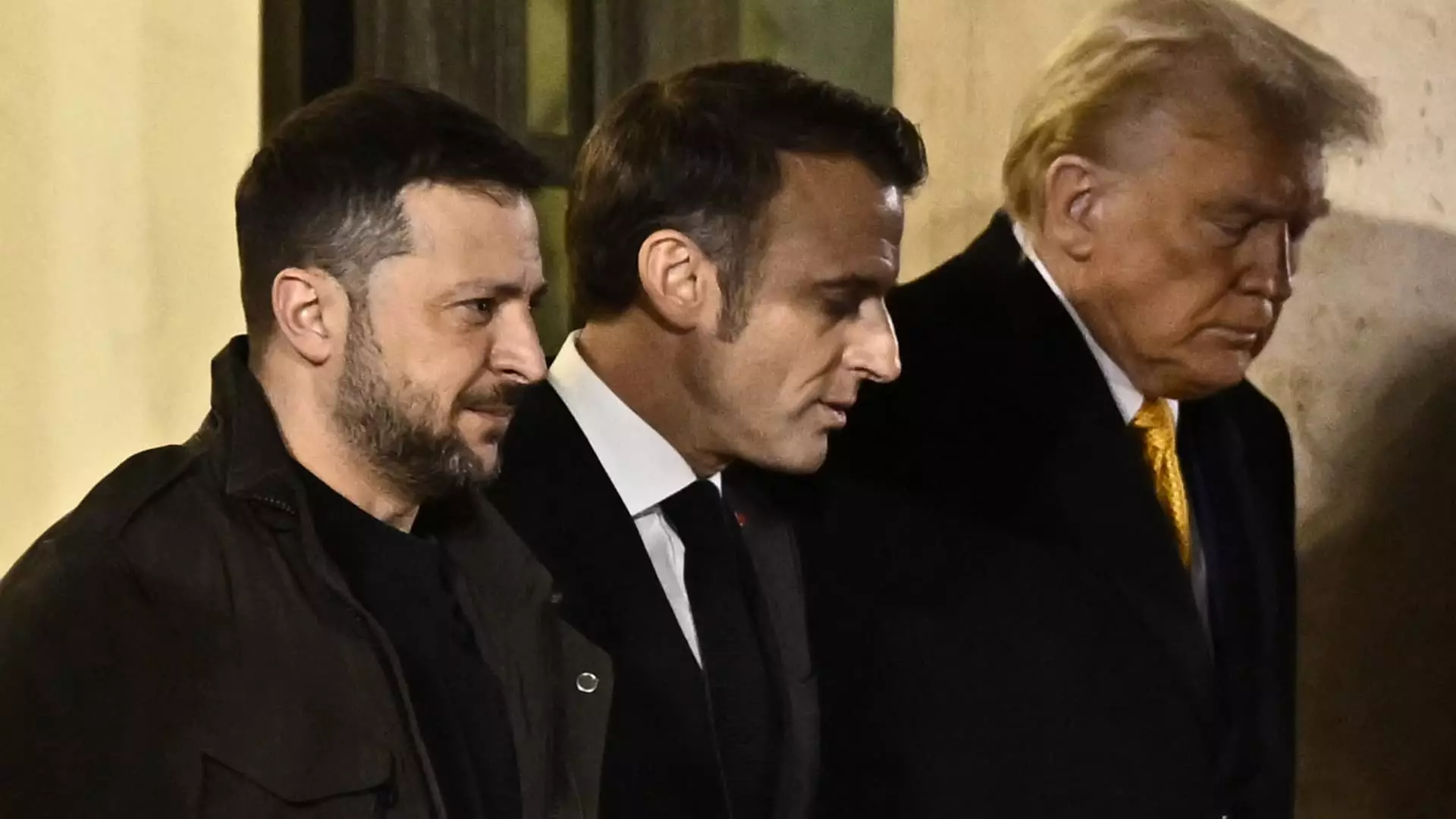The ongoing conflict between Russia and Ukraine continues to dominate international discourse, creating not only a humanitarian crisis but also a geopolitical struggle for power among those involved. As various stakeholders jockey for influence, Europe is endeavoring to gain a foothold in peace negotiations which seem set to unfold imminently. The urgency of this endeavor was highlighted during a recent emergency summit in Paris, convened by French President Emmanuel Macron in reaction to concerns that Europe may be sidelined from critical discussions spearheaded by the United States and Russia.
In a striking development over the weekend, the U.S. government announced that substantive discussions aimed at concluding the nearly three-year conflict are set to take place in Saudi Arabia, with high-level diplomats from Washington and Moscow engaging in talks. U.S. Secretary of State Marco Rubio is expected to meet with Russia’s Foreign Minister Sergei Lavrov this Tuesday. Ukrainian President Volodymyr Zelenskyy confirmed his imminent travel to Riyadh but firmly stated that Ukraine would not participate in the early discussions, raising questions about the legitimacy and potential efficacy of negotiations lacking Ukrainian representation. “Any talks about Ukraine that do not involve Ukraine cannot yield meaningful results,” Zelenskyy asserted, emphasizing a crucial point that underscores a broader tension in the negotiation landscape.
These developments come amid conflicting narratives emanating from U.S. officials regarding Ukraine’s involvement. President Donald Trump suggested that Zelenskyy would play a role in the peace process, only to have those comments contradicted by more cautious assessments. Such inconsistency creates uncertainty not just for Ukraine but also for European countries hoping to actively contribute to the resolution of this conflict.
The Paris summit, attended by leaders from seven European nations including Germany and Poland, emphasized the necessity of a European voice in the peace dialogue. As some European leaders expressed concern about being excluded from the initial stages of discussions, there was a collective acknowledgment that genuine and lasting peace would be unattainable without European involvement. Estonia’s Foreign Policy Chief Kaja Kallas articulated this sentiment, insisting that “Ukrainians and Europeans are the ones who need to also implement the deal here in Europe, so without us, any deal wouldn’t just work.”
This notion of collective agency touches on a broader theme: for a resolution to be credible, those who share geographic proximity and political allegiance to Ukraine must have a say. Moreover, European Commission President Ursula von der Leyen’s warning about the ramifications of failing to secure a just peace echoes this sentiment, suggesting that such a failure could destabilize not only Europe but also the United States.
The inclusion of European interests is paramount, as articulated by U.S. Special Presidential Envoy Keith Kellogg, who indicated that European allies are being asked to outline their military capabilities to support Ukraine. This is an attempt to incorporate a European perspective into security guarantees that would both deter Russia and bring about a lasting resolution. However, this strategy raises questions about the limits of European engagement in a dialogue that appears dominated by U.S.-Russia relations.
Meanwhile, the U.K. is poised to play a mediating role, with Prime Minister Keir Starmer expressing his readiness to act as a bridge between European leaders and Washington. Starmer’s remarks that the U.K. could consider committing British forces to the conflict, should it be deemed necessary, reflect a growing urgency for European nations to bolster their defense capabilities. His belief that U.S. and European objectives align resonates with the understanding that peace in Ukraine is as crucial for Europe’s security as it is for the United States.
NATO’s Reassessment and Future Aspirations
The North Atlantic Treaty Organization (NATO) is also navigating this complex landscape, with Secretary General Mark Rutte indicating forthcoming discussions to increase defense spending targets. This move aligns with long-standing concerns voiced by the U.S., particularly during the Trump presidency, emphasizing the importance of collective military readiness amongst NATO members.
As European leaders converge on the need for a coherent strategy, the imperative becomes clear: for any peace agreement to garner legitimacy and ensure sustainability, it is vital that Europe plays an integral role. This is not merely a matter of geopolitical power dynamics but a question of ethical responsibility toward a sovereign nation in distress.
As the Russia-Ukraine conflict engenders turmoil and debate, Europe must firmly position itself at the negotiating table. The outcome of these discussions will have far-reaching implications not only for Ukraine but for the broader balance of power in Europe.


Leave a Reply